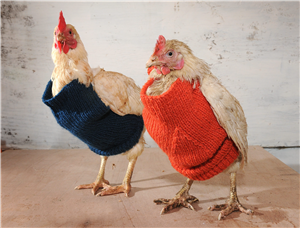Self-Help
It Worked For Me! (But No One Else)
Why so many self-help titles sound reasonable, but won't actually help anybody
Posted September 30, 2012
In a previous post I talked about how testimonials help make a self-help approach more effective, because they make consumers more confident that the approach will help them. This only works, however, if the approach had the potential to help in the first place; a person will give it a chance to work, and so it will. To illustrate with a metaphor: aspirin only helps your headache if you actually swallow the aspirin. It follows, then, that swallowing a piece of candy - however delicious - will not help your headache. In this post, I argue that the figurative "piece of candy" in this situation is the personal success story.
Self-help shelves are full of personal success stories. The underdog who pulled himself up by his bootstraps. The trauma survivor who emerges better than ever and finally finds joy in life. The wildly successful CEO who made it to the top with her charm and savvy. A person with a good story can make millions by sharing the secret of their success with others. While these stories can be entertaining or inspiring to hear, when it comes to offering practical, useful advice to the audience, I believe that this type of book leaves much to be desired.
I'm not saying that I don't see the merit in writing about one's life. It's natural to want to make sense out of one's life experiences -- in fact, work by James Pennebaker suggests that one of the most important ways that people cope is to craft the events of their lives into a cohesive narrative. Writing is one of the best ways to do exactly that. Laura King finds that writing about one's triumphs, in particular, can be tremendously beneficial for the person doing the writing.
However, humans are limited in their ability to draw lessons from what has happened to them in a way that generalizes to other people, or even to themselves in different situations. Take, for example, the author who remains upbeat despite incredible setbacks and difficulties he has faced in life. He might tell us what he believes to be the secret to how he stays happy despite the terrible hand life has dealt him; truth be told, though, he probably has no idea. As a general rule, according to Harvard professor Dan Gilbert, people have many inaccurate beliefs about what makes them happy, what makes them unhappy, and how potent or long-lasting any particular life event might be in affecting them. It is unlikely, then, that any person has sufficient self-understanding to generate an accurate "moral" to their own story.
Nevertheless, people pay to hear personal success stories all the time. These stories fill us with hope; they leave us with the sense that there's something we could be doing differently, that would allow us to be as happy and successful as the author, if only we work hard enough. But that can be a dangerous message if no amount of hard work will pay off. Thinking back to the metaphorical comparison of aspirin versus candy - you can eat as much candy as you want but even if you eat a whole bag, it won't help your headache.

One man's miracle cure is another man's chicken sweater
I recently came across several web pages of people who put chickens in sweaters*. A chicken sweater is a niche item in that it's useful for a very small subset of chickens: those who are being rescued from neglect, and who have lost their feathers, and who are hens, so they are likely to sit still a lot, and who will be living in a cold climate during a cold time of year. In these very rare cases, a chicken sweater might save a chicken's life. Does that mean every chicken owner should put all of their chickens in sweaters? Or even all of their hens? Or even all of their rescue hens? No. The chicken sweater is an oddity in most situations, and a life-saver in one very particular situation. Indeed, more chicken-owners than not do not use and have never used chicken sweaters.** For most chickens, a sweater is at best a silly ornament, and at worst a wet, filthy impedence that can actually make the chicken colder.
I would argue that a book or speech containing a personal success story is kind of like a chicken sweater. Might it be appealing? Sure. Might we imagine a case where it could be helpful? Sure. But what are the chances that whatever "chicken sweater" the storyteller is proposing will be relevant to any of us - even the very limited subset of us who own chickens (or have gone through a divorce, or a trauma, or whatever else)? Unfortunately, while a chicken sweater looks pretty ridiculous, most personal success stories do not; they're often quite moving, and as they inspire us, they can lull us into believing that they are relevant to our own efforts to succeed in life. It takes careful examination to reveal that such a story may be, under the surface, only a lump of cloth that weighs us down.
*Thanks to Katrina Misinay for posting this picture of chickens in sweaters on her Pinterest site.
**Some readers may know that I live on a small farm. We have about 20 chickens. They do not wear chicken sweaters.


